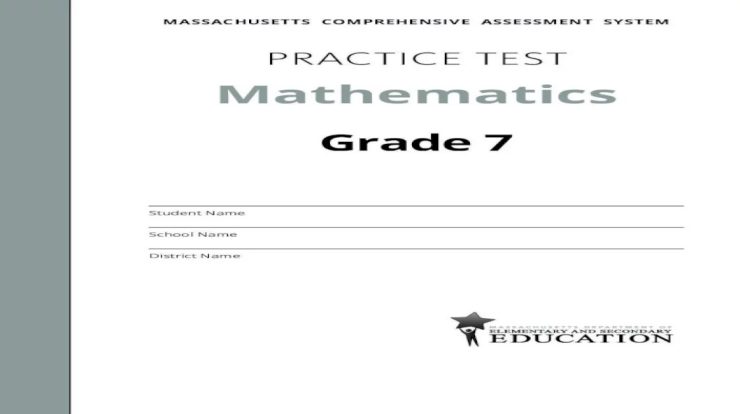Extra credit gened assessment tests: an academic tool that sparks curiosity, challenges conventional learning, and empowers students to excel. Dive into the realm of these tests, exploring their benefits, complexities, and best practices.
Extra credit gened assessment tests go beyond mere grades, offering a platform for deeper understanding, critical thinking, and practical application of knowledge. They ignite a passion for learning, encouraging students to push boundaries and delve into subjects with newfound enthusiasm.
Defining Extra Credit Gened Assessment Tests
Extra credit gened assessment tests are additional evaluations that students can take to earn extra credit in their general education (gened) courses. These tests are typically optional, and students who choose to take them can potentially improve their overall grade in the course.
There are different types of extra credit gened assessment tests, including:
- Essays:Students may be asked to write an essay on a topic related to the course material. Essays typically require students to demonstrate their understanding of the material and their ability to write clearly and concisely.
- Quizzes:Quizzes are short, multiple-choice or true/false tests that cover specific topics from the course material. Quizzes can help students assess their understanding of the material and identify areas where they need to improve.
- Projects:Projects are more in-depth assignments that allow students to explore a topic in more detail. Projects can take many different forms, such as research papers, presentations, or creative works.
Extra credit gened assessment tests can be a valuable way for students to improve their understanding of the course material and earn extra credit. However, it is important to note that these tests are typically optional, and students should not feel pressured to take them if they do not have the time or resources.
Benefits of Extra Credit Gened Assessment Tests
Extra credit gened assessment tests offer a plethora of advantages that enhance the academic and personal development of students. These tests provide opportunities for students to deepen their understanding of course material, improve their critical thinking and analytical skills, and explore topics of interest beyond the core curriculum.
Additionally, extra credit gened assessment tests can foster a sense of accomplishment, boost confidence, and contribute to the development of lifelong learning habits.
Academic Benefits
Extra credit gened assessment tests serve as valuable tools for reinforcing course content and promoting deeper learning. By completing these tests, students can revisit key concepts, practice applying their knowledge, and identify areas where they need additional support. These tests also provide opportunities for students to engage with the material in different ways, such as through writing essays, creating presentations, or participating in discussions.
Non-Academic Benefits
Beyond their academic value, extra credit gened assessment tests offer a range of non-academic benefits that contribute to students’ overall growth and well-being. These tests can help students develop important life skills, such as time management, organization, and self-motivation. They can also provide opportunities for students to connect with their peers, build relationships with faculty, and explore their interests in a supportive environment.
Enhancing Student Learning
Extra credit gened assessment tests play a crucial role in enhancing student learning by:
- Providing opportunities for students to practice and apply their knowledge.
- Encouraging students to explore topics of interest beyond the core curriculum.
- Fostering a sense of accomplishment and boosting confidence.
- Developing important life skills, such as time management and self-motivation.
Challenges of Extra Credit Gened Assessment Tests
While extra credit gened assessment tests can provide several benefits, they also present certain challenges that educators must address to ensure their effectiveness.
Challenges of Designing Effective Extra Credit Gened Assessment Tests
Designing effective extra credit gened assessment tests requires careful consideration to ensure they align with learning objectives, assess student understanding accurately, and promote student engagement.
- Ensuring alignment with learning objectives:Extra credit assessments should directly relate to the course content and learning objectives to reinforce key concepts and skills.
- Assessing student understanding accurately:The assessment should be designed to evaluate student comprehension of the material and not merely test their ability to memorize facts.
- Promoting student engagement:The assessment should be engaging and motivating for students to encourage their participation and effort.
Challenges of Grading Extra Credit Gened Assessment Tests
Grading extra credit gened assessment tests can be challenging due to the need for consistency, fairness, and objectivity.
- Maintaining consistency:Educators must ensure that all students are graded fairly and consistently based on pre-established criteria.
- Ensuring fairness:The grading process should be transparent and unbiased, avoiding subjective judgments that could lead to disparities in grading.
- Objectivity in grading:Grading should be based on clear criteria and rubrics to minimize the influence of personal bias or subjectivity.
Challenges of Administering Extra Credit Gened Assessment Tests
Administering extra credit gened assessment tests requires careful planning and coordination to ensure smooth implementation and prevent logistical issues.
- Scheduling:Educators must carefully schedule extra credit assessments to avoid conflicts with other academic commitments and ensure sufficient time for students to complete them.
- Logistics:The logistics of administering the assessment, such as providing materials, ensuring test security, and accommodating students with disabilities, must be addressed.
- Student accessibility:The assessment should be accessible to all students, regardless of their location or technological resources.
Best Practices for Extra Credit Gened Assessment Tests
Extra credit gened assessment tests can be a valuable tool for students to improve their grades and learn more about the material. However, it is important to design, grade, and administer these tests in a way that is fair and effective.
Designing Extra Credit Gened Assessment Tests
When designing extra credit gened assessment tests, it is important to keep the following best practices in mind:
- Make sure the test is relevant to the course material.The test should cover material that has been covered in class or in the readings.
- Make the test challenging but fair.The test should be challenging enough to encourage students to study, but it should not be so difficult that students are discouraged from taking it.
- Provide clear instructions.The instructions for the test should be clear and easy to understand.
- Use a variety of question types.The test should include a variety of question types, such as multiple choice, short answer, and essay questions.
- Allow students to use their notes.Allowing students to use their notes can help them to do well on the test.
Grading Extra Credit Gened Assessment Tests
When grading extra credit gened assessment tests, it is important to keep the following best practices in mind:
- Be fair and consistent.The grading should be fair and consistent for all students.
- Provide feedback.Students should be given feedback on their performance on the test.
- Use a rubric.A rubric can help to ensure that the grading is fair and consistent.
Administering Extra Credit Gened Assessment Tests
When administering extra credit gened assessment tests, it is important to keep the following best practices in mind:
- Give students enough time to complete the test.Students should be given enough time to complete the test without feeling rushed.
- Provide a quiet and comfortable environment.The testing environment should be quiet and comfortable so that students can focus on the test.
- Be available to answer questions.The instructor should be available to answer questions from students during the test.
Case Studies of Effective Extra Credit Gened Assessment Tests
Extra credit gened assessment tests can be a valuable tool for instructors to engage students and encourage them to go above and beyond the minimum requirements. Several institutions have implemented effective extra credit gened assessment tests, providing valuable lessons for others looking to do the same.
The following table compares case studies of effective extra credit gened assessment tests:
| Institution | Course | Type of Assessment | Results |
|---|---|---|---|
| University of California, Berkeley | English 101 | Annotated bibliography | Increased student engagement and improved research skills |
| University of Michigan | History 201 | Historical fiction writing | Enhanced student understanding of historical events and improved writing skills |
| Ohio State University | Science 101 | Science fair project | Promoted hands-on learning and increased student interest in science |
Lessons Learned from Case Studies
These case studies demonstrate the following lessons for designing effective extra credit gened assessment tests:
- Choose assessments that align with course learning objectives and encourage critical thinking.
- Provide clear instructions and grading criteria to ensure student understanding.
- Offer opportunities for student choice and creativity to foster engagement.
- Consider the workload and time constraints of students when assigning extra credit.
- Use extra credit as a supplement to regular coursework, not as a replacement for it.
FAQ Corner
What is the purpose of extra credit gened assessment tests?
Extra credit gened assessment tests provide students with opportunities to earn additional credit beyond regular coursework, fostering deeper engagement and understanding.
How do extra credit gened assessment tests enhance student learning?
These tests challenge students to think critically, apply knowledge in new contexts, and develop problem-solving skills, promoting a more comprehensive and meaningful learning experience.
What are the challenges of designing effective extra credit gened assessment tests?
Creating tests that are engaging, relevant, and aligned with learning objectives while ensuring fairness and academic integrity can be a complex task.




